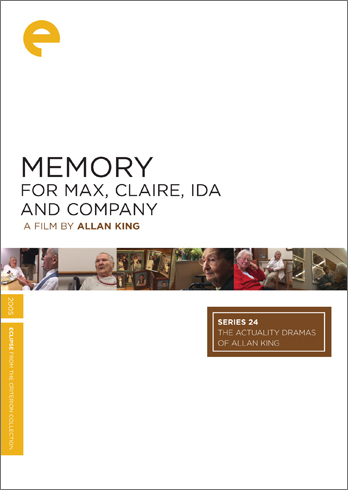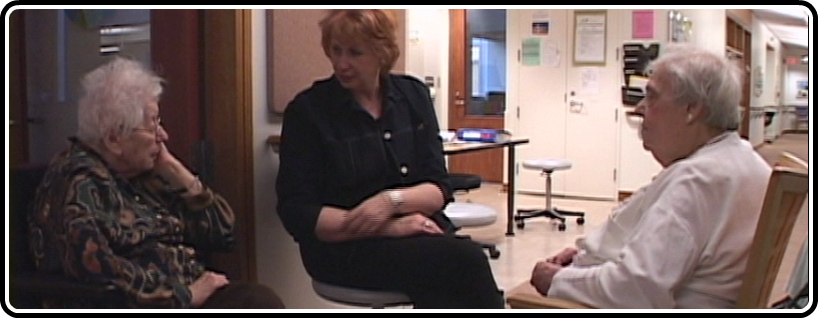
Memorial Day weekend marks, among other things, the anniversary of this column here on CriterionCast.com. I began covering individual films from the Eclipse Series around this time in 2010, choosing the classic antiwar film Wooden Crosses for my first review, befitting the holiday theme of remembering those who’ve served in armed combat. This year, I’m taking a different approach to the meaning of Memorial Day, turning my thoughts not to those who’ve survived the perils of war, but instead to those who are battling against an even more dreadful and imposing adversary – the ravage of time and its effect on our physical and mental health. Memory for Max, Claire, Ida and company is a documentary feature from Eclipse Series 24: The Actuality Dramas of Allan King. Whatever direction your taste in film may steer you, I can hardly think of a title quite as scary, sobering or, in a strangely indirect way, inspiring in regard to how we cultivate our relationships, care for our minds and bodies and set our priorities in everyday life.
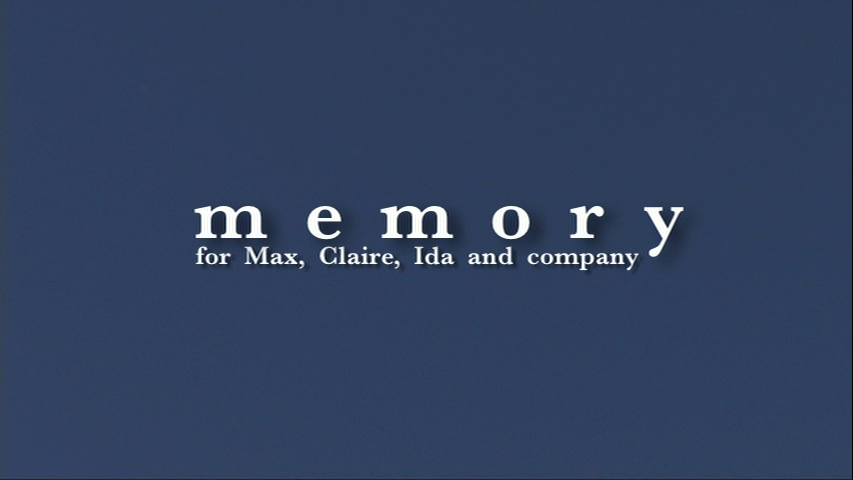
As with all of Allan King’s “actuality dramas,” the quality that sets them apart from a more typical documentary approach is their lack of a framing narrator’s voice that stands outside the action we see on screen to put events in context or steer our interpretation of what we perceive. In his earliest example from this set, Warrendale, we’re brought into a residential treatment home for emotionally impaired teens and children. In Memory, the latest of the five films collected here, King introduces us to a treatment facility called Baycrest, serving the needs of those at opposite end of the aging spectrum, a housing complex for the elderly, especially those whose conditions require round the clock medical care.
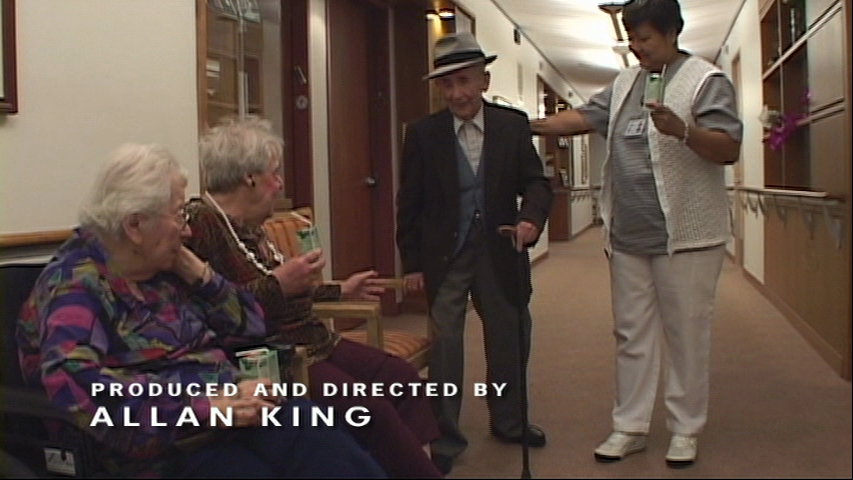
Rather than talk directly to the residents who live there or the staff and administrators who run the place, King and his crew somehow strike the balance of integrating themselves almost seamlessly into the life of the community that has developed at one unit in the complex, the Apotex Centre, Jewish Home for the Aged. His methods require many weeks of assimilating into his settings, getting to know his subjects and allowing them to get well past the point of self-consciousness whenever they see his camera peering in and recording their casual interactions. This patient work allows him to gain access to amazingly poignant moments, the sort of pivotal exchanges between people that we usually have to rely on talented scriptwriters to spell out in order to capture them on film in a fictionalized form. In fact, the raw vulnerability and pathos that we see in Memory is probably all but impossible to concoct from mere recollection, and I challenge even the most talented of thespians to transform themselves as thoroughly as they can in order to capture the sad verisimilitude required to approximate the heartbreaking epiphanies that take place in this footage. The authenticity of despair, loneliness, confusion and grief captured by King is pretty overwhelming, and requires some disciplined distancing from a sensitive viewer to avoid being caught in an undertow of heavy emotions.
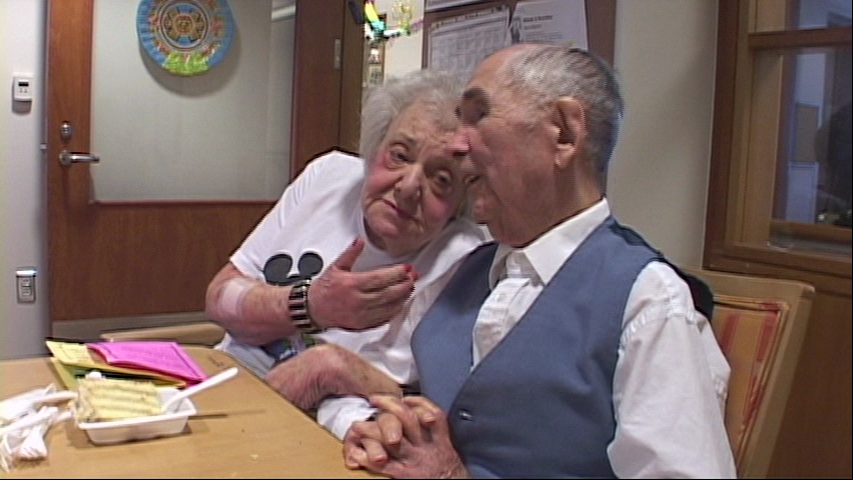
Memory’s drama pivots around the relationship between Max and Claire, two retirees who’ve formed a special platonic bond, though all evidence points to Claire as the one who probably initiated and persevered in forging that connection. She’s an opinionated, strong-willed woman who clearly struggles with the irritating behaviors of her neighbors – their incessant crying and complaining, their defeatist attitudes, the hassles they inflict upon the hard-pressed staff doing their best to assist them. Max, a soft-spoken, well-dressed gentleman blessed with an impish smile and a playful demeanor, is the light of Claire’s day to day existence, as we see in the film’s opening scene, a celebration of her 89th birthday in which we meet her younger relatives as they pay a brief visit before getting the heck out of there and back to their normal, comfortable routines. Max is a bit daft, not always tuned in to what’s going on around him, but serves as a helpful buffer that gives Claire an object of affection to distract her from more aggravating realities.
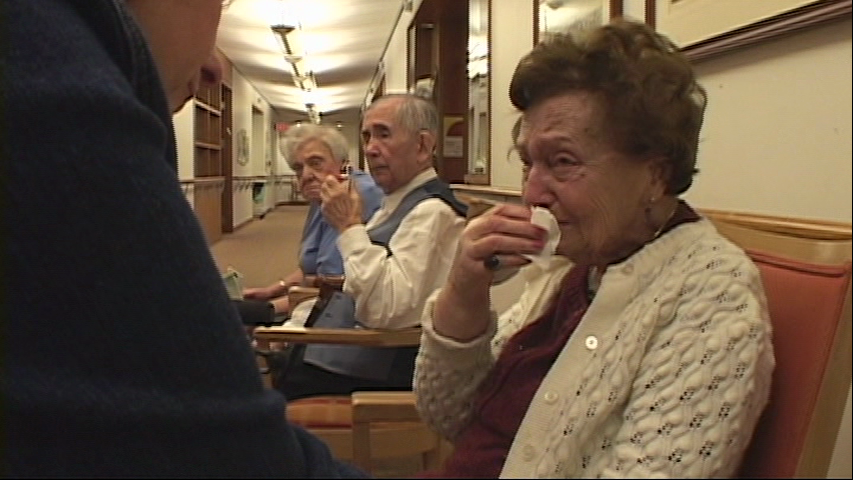
One of the nuisances that Claire has to endure is Fay, a chronically lonesome woman who can’t stop weeping in anguish over her sense of abandonment by her son, a businessman who spends much of his time out of the country and apparently doesn’t do much to communicate with his mom while he’s away. Fay is quite expressive about whatever feeling happens to be sweeping over her at any given moment, running the full gamut from morose despair to homicidal fury when her son is absent and unbounded elation that she’s barely able to contain when he shows up one afternoon bearing gifts. Though the son is a little too impressed with his own generosity, brashly announcing the price of the expensive watch he just gave her ($4,337, to be exact), she’s more elated with the fact that it’s him, her very own son, who’s standing there in the room with her. The dollar store hair comb he gives her a few moments later sparks just the same reaction from her.
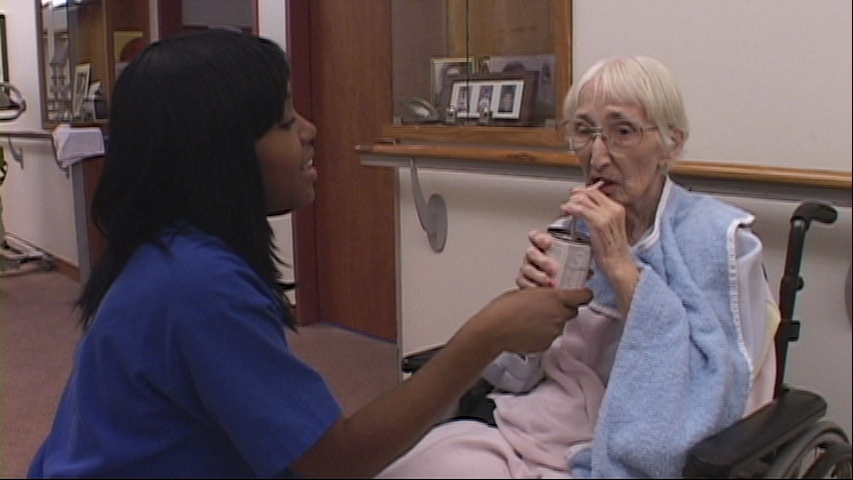
Though the residents of Baycrest are the main focal point here, and rightly so, as a social services professional myself I was quite interested in observing the staff as they went about their work. My job is with young people (quite similar to the clients shown in Warrendale) but I noticed many of the institutional trappings that I and my colleagues are familiar with, including the demanding task of having to work through apathy, resistance and various failures to communicate across the gulf that separates paid care-givers from their recipients. The image above shows one of the employees offering a can of Ensure to Ruth, in what becomes a running gag (of a melancholy sort) as we observe her repeatedly being given one kind of beverage or another. Her attendants try in vain to find the right liquid refreshment for a woman who appears to be running low on her will to live and doesn’t really want to be bothered with the tedious task of hydrating herself.
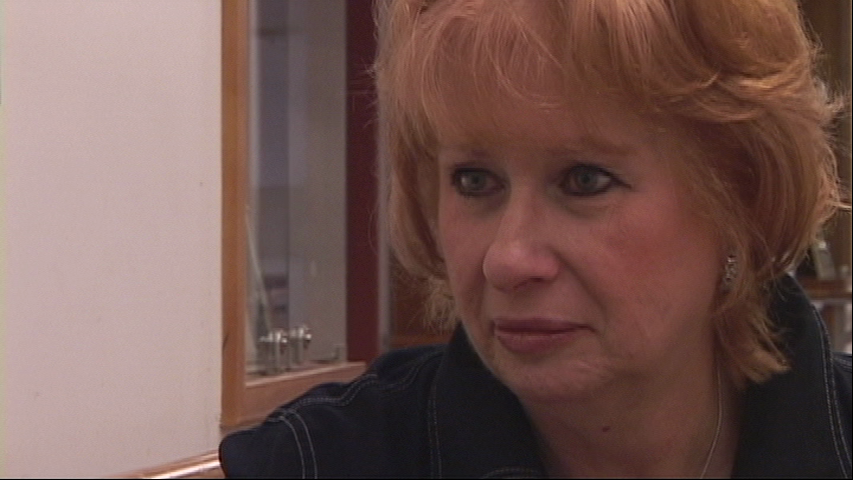
Most impressive among the Baycrest staff is a woman credited as “Liaison,” Bev Zwaigen, who appears to be the home’s assigned social worker or counselor. Whatever title she may have, what she really is is a very good listener. Her steady and compassionate gaze conveys warmth, empathy and respect for the women and men she works with, despite their often prickly and irritable responses to her best efforts. Bev is an example of the unknown and under-appreciated everyday heroes who make themselves available to society’s most vulnerable members, imparting grace and dignity with casual, well-practiced ease. We would all be fortunate to find ourselves in the care of such a kind-hearted person if we ever find ourselves facing the same challenges as the inhabitants of the Apotex Centre.

One of the most wrenching portions of the film occurs about halfway through when one of the residents passes away and we witness the grieving process of those left behind. What makes it especially hard to bear, but morbidly fascinating at the same time, is that one of the friends of the deceased is suffering from short-term memory loss, meaning that she has to re-experience the heartbreaking news multiple times, since she’s unable to remember being previously told of the death.

Also of interest to me was the examination of the Apotex Centre itself. Architecturally, it’s pleasant enough, though obviously built for efficiency in managing the residents’ medical needs. The utilitarian nature of such buildings renders them somewhat sterile and generic, with long empty corridors and spacious empty lobby-style public areas for easy wheelchair access. A director like Stanley Kubrick or Hotel Monterey-era Chantal Akerman could have had a field day exploiting some of the facility’s creepier aspects, but thankfully Allan King chose not to go there. I’m sure that Baycrest management were grateful for his discretion in that regard. Still, the actuality of what goes on in places like this is undeniable – for all of its comforts and sincere intentions to accommodate their customers, the high rise glass and steel compound is a grim place to spend one’s last days on earth. But circumstances in each of these lives have made it unavoidable, and it’s impossible to watch Memory without at least momentarily contemplating what sort of end-of-life destiny awaits us, should we live so long.
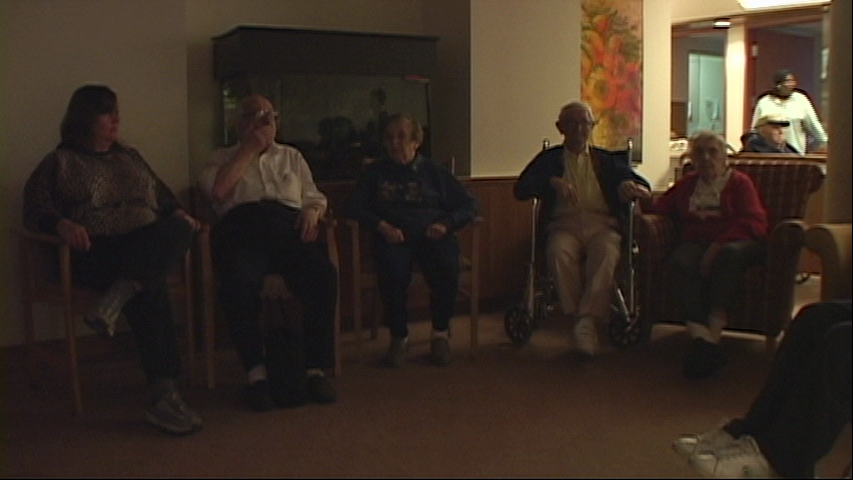
Despite the heaviness of the subject matter and that palpable sense of gloom and inevitable loss that permeates Memory for Max, Claire, Ida and company, the film does not necessarily demand a dour or pessimistic response on our part. The truth is, death and irrevocable separation from the past is already built into the fabric of the universe, and we only delude ourselves if we persist on blocking that knowledge from our consciousness. Allan King bravely takes his camera into a place that most people deliberately avoid visiting or even thinking about, and shows us that vibrant life-energy and human kindness still dwell there even after much of what we consider to be normal and essential about ourselves has been stripped away. The thoughts and feelings expressed by this company of elderly survivors come through with a raw, unfiltered intensity that most adults routinely repress for the sake of politeness, safety or conflict avoidance. It’s really kind of refreshing to see folks letting their true reaction come all the way through to the surface, even if they aren’t at their photogenic best at this late stage of life. I also got a pretty strong pep talk to myself out of the viewing, inspiring me to take good care of my health so that I can put off the dreadful decline as long as possible. I’ve indulged in enough brain-cell killing activity already in this life! It’s time to protect and preserve what’s left!
Though I can’t necessarily recommend Memory as a DVD that you’ll feel compelled to watch repeatedly (unless you’re contemplating entry into an elder care facility either as an employee or a resident), I consider it a very important and worthwhile documentary to view at some point along life’s journey. Even if purchasing it is not so high on your priorities, it’s available to watch on Criterion’s Hulu Plus channel, so give it a look if you’re a subscriber. I can promise you, this is not a film that you’re likely to soon forget.



